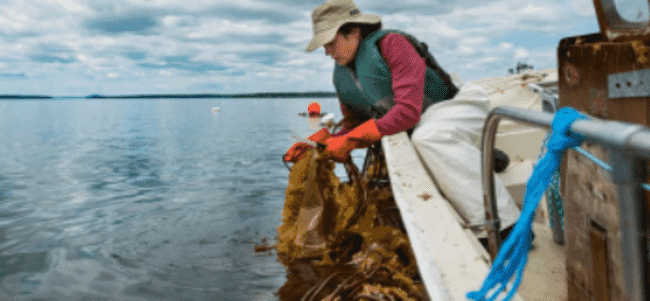
Springtide Seaweed grows sugar kelp, skinny kelp, alaria and dulse on the largest organic seaweed farm in North America, while its nursery provides organic seed to farmers throughout New England © Springtide Seaweed
The grant, which was announced this week by US Senators Susan Collins and Angus King, aims to build on the efforts of the SEAMaine marine economy action plan, an industry-led effort funded with the support of Senators Collins and King.
“Small businesses are the backbone of Maine’s economy, and helping them to reach their full potential strengthens Maine’s economy and creates new employment opportunities, particularly in our rural communities,” said Senators Collins and King in a joint statement.
“We welcome this investment from the USDA, which will allow Springtide Seaweed to develop new seaweed crops, increasing sustainability and efficiency in the industry, diversifying the aquaculture industry, and supporting jobs in coastal communities."
According to Senator King, the potential of US seaweed aquaculture is immense, but the industry remains stalled at low-value brown kelp crops.
Springtide Seaweed, which is based in Gouldsboro, Maine, will use this funding to refine its nursery technologies and designs for efficient seed production of high-value nori and dulse red seaweed. This cultivation system would be used by Springtide Seaweed and commercialised for aquaculture businesses globally.
New turnkey systems, adaptable to red and brown seaweed cultivation, seek to increase sustainability in the industry, reduce gear and crop failure, and enable high-value red seaweeds to be easily integrated into existing aquaculture industries, including shellfish, finfish and seaweed farms worldwide.
This funding was awarded through the Small Business Innovation Research Program at the US Department of Agriculture’s (USDA) National Institute of Food and Agriculture. This program encourages the growth of domestic small businesses by offering competitively awarded grants to support high-quality research related to important scientific problems and opportunities in agriculture. These small business ventures are recognised as having the potential for larger scale commercialisation as well as benefits to the community at large.




